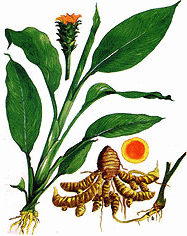
Top Ten Best Foods for Digestive Health
When it comes to belly health and a gastrointestinal system functioning in tip-top shape, foods are not created equal! There are a wide variety of foods that will help your digestive system in a myriad of ways. I have created a list for you of my top ten favorite foods for GI health. While this list is not exhaustive, it is a good representation. What foods do you think are missing?
- Protein: Protein is the structural framework from which all biological systems are built upon, and the GI system is no different. Adequate protein intake is also crucial for optimal immune function. The compounds that immune cells use to communicate with each other, and immunoglobulin (antibodies) are made from protein. If we don?t eat enough protein, our body turns to its stored sources ? muscle tissue ? to be broken down and used for these function. You can imagine it is difficult for the body to heal and work at its best when it is breaking down its own tissues. Opt for options like chicken, turkey, bison, grass fed beef and free-range eggs (as long as you don?t have an egg allergy).
- Bone Soup: Bone soup is rich in vitamins, minerals and the building blocks of collagen. The body uses collagen to build up soft tissues. Bone soup is extremely nutritive and is great for people with colitis, inflammatory bowel disease and diverticulitis ? especially in the middle of a flare. It is extremely easy to absorb and assimilate.
- Pumpkin: You can also lump winter squash and sweet potato in this category. Pumpkin has compounds in it which are great for soothing inflamed tissues in your GI tract. It is also rich in a wide variety of soluble and insoluble fibers, which help feed your beneficial bacteria and keep you regular. Pumpkin is very rich in beta carotene, which is great news for your immune system, too.
- Coconut: Coconut products, including the milk, oil, water and flesh of coconuts are one of the very best foods for your belly. Their healthy fats are absorbed directly in the GI tract for energy, keeping those busy cells happy. Coconut also has several factors which are directly anti-bacterial, anti-viral and anti-parasitic. Lastly, chipped coconut or coconut shreds are a great source of fiber.
- Fermented foods: I?m not exactly talking about beer here! J Foods that are fermented, like sauerkraut and kimchi are rich in beneficial bacteria that aid in digestion. Fermented foods aren?t very much a part of the modern diet, but we ate a variety of them in our ancestral past. What about yogurt? While it is fermented, so many people have sensitivities to dairy products that I couldn?t justify its addition to my top ten.
- Cabbage: Cabbage and the cruciferous family of veggies, which includes broccoli, brussels sprouts, kale, bok choi and cauliflower, are complete powerhouses for your gut. They contain ample amounts of glutamine. Glutamine is the preferential fuel source of the cells that line your GI tract, meaning that these cells will seek out glutamine over glucose as a fuel source. What wisdom our body has! If our digestive tract had to compete with the brain and the rest of our organs for glucose, imagine how many more people would have digestive issues. High vegetable intake has been associated with lowered rates of colorectal cancer. Cabbage contains a variety of antioxidant compounds, helping to quench inflammation in the gut.
- Onion/Garlic: In addition to having antimicrobial properties, garlic and onions are also mildly slippery. Slippery compounds help coat the GI tract, acting as a buffer, promoting healing and preventing destruction of the delicate tissues there. Onions are one of the highest foods sources of quercetin, a potent bioflavonoid that boosts immunity, helps with allergies and destroys free radicals.
- Turmeric/Curcumin: This brilliant orange spice disrupts inflammation and helps soothe the GI tract. People with inflammatory bowel disease, colitis and colorectal cancer should take both curcumin and turmeric. Curcumin is a piece of turmeric, and is more readily absorbed into the bloodstream. Turmeric stays in the intestine, coating it and reducing inflammation there. In this way, you get a one-two punch against inflammation. Curcumin helps your body make antioxidants, in addition to being a potent antioxidant itself. It is great for immune function, brain health and reducing musculoskeletal aches and pains.
- Artichokes/Sunchokes: These foods are one of the richest sources of prebiotics. Prebiotics are fibers and small, short fatty acids that feed your beneficial bacteria. Our beneficial bacteria do so many great things for us, we want to keep them as happy as possible!
10. Okra: OK, I live in the South now and have been exposed to okra. In addition to being downright tasty, okra contains compounds in it that coat and soothe the GI tract. You will notice that okra makes an appearance in many GI health supplemental formulas. Okra?s slippery quality is what makes it such a balm for the gastrointestinal system.
These foods support the gastrointestinal system by building it up, nourishing it, providing and energy source, decreasing inflammation, and supporting beneficial bacterial health. Here is to your health!
I’d love to hear about your health journey! Let’s get together on Instagram & Twitter!


